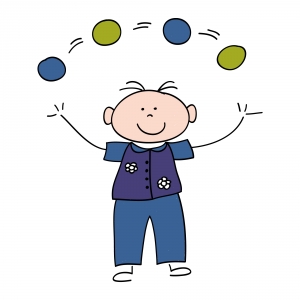 Today, I attended a conference called ‘Mind and Its Potential’ which gathers leading researchers in brain science and cognition from eastern and western traditions. It was a fascinating day. I listened to V.S. Ramachandran, Professor with the Psychology Department and Neurosciences Program at the University of California, San Diego, discuss mirror neurons and Buddhist nun, Venerable Yeshe Khadro, talk about attitudes to death and dying. There was an Olympic Gold medal winning volley-baller talking about how self-belief is the core of success with elite athletes (along with loads of training). And a young man talked about his determination to recover after an horrific car accident.
Today, I attended a conference called ‘Mind and Its Potential’ which gathers leading researchers in brain science and cognition from eastern and western traditions. It was a fascinating day. I listened to V.S. Ramachandran, Professor with the Psychology Department and Neurosciences Program at the University of California, San Diego, discuss mirror neurons and Buddhist nun, Venerable Yeshe Khadro, talk about attitudes to death and dying. There was an Olympic Gold medal winning volley-baller talking about how self-belief is the core of success with elite athletes (along with loads of training). And a young man talked about his determination to recover after an horrific car accident.
The final talk of the day was titled ‘Juggling Your Way to Success’ by Michael Gelb. And he literally taught the room how to juggle. We started with one ball, then two. He demonstrated how to juggle three balls. Michael is an innovation and creativity expert who travels the world talking about how Leonardo da Vinci and Thomas Edison came up with so many great ideas. And how juggling can help brain function. He used to juggle at Rolling Stones concerts, by the way.
Gelb cited German research that proved juggling improves brain function. Here are the details as reported by ABC News.
German researchers divided 24 non-jugglers into two groups and assigned one group to practice juggling for three months. The scientists performed brain scans on the volunteers using magnetic resonance imaging, or MRI, before and after they learned to juggle.
Those who now acquired the skill demonstrated an increase in gray matter in two areas of the brain involved in visual and motor activity, the mid-temporal area and the posterior intraparietal sulcus.
It reinforced the theme of the day, that the brain likes to be challenged, excited, and stimulated. If we don’t use it, we lose it.
In Gelb’s book “The 5 Keys to High Performance Learning”, he outlines these principles:-
- Activate your brain’s success mechanism: Use tools like creative visualization, but remember: “Distinguish between fantasy and visualization. … A fantasy does not require conscious attention, and it is not as focused or energizing as a visualization.”
- Transform your attitude toward mistakes and failure: Don’t view them as roadblocks. They’re really guides to learning. Try to look on them with some affection rather than fear.
- Unleash your natural genius through the power of play: Give yourself permission to have fun. … It worked for Albert Einstein.
- Achieve more with less effort by cultivating relaxed concentration: Sometimes trying or working harder is counterproductive.
- Develop your coaching skills so you can bring out the best in people at work and at home: Access, as they say in Zen, your “beginner’s mind.” Demonstrate a belief in the ability of others that changes their lives.
You don’t need to take up juggling to challenge your brain. But keep feeding it with new experiences. Drive a different route to work. Strike up a conversation with someone new. Teach yourself a new trick. You’ll be more productive for it!
Photo Credit: http://www.sxc.hu/photo/299690




